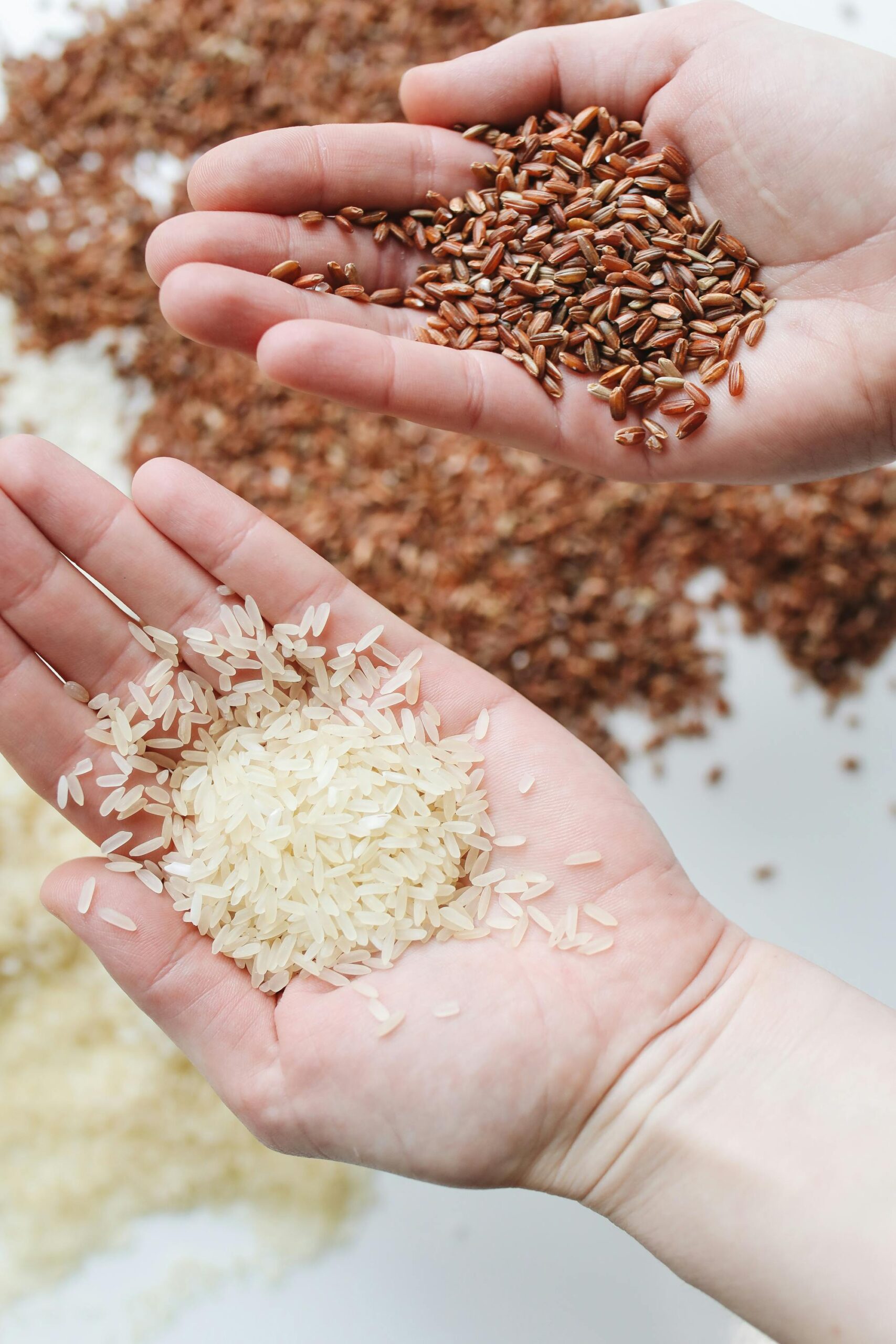Health
Discover the Power of Tea Sleep for a Peaceful Night’s

Are you tired of tossing and turning all night, desperately seeking a peaceful slumber? If counting sheep just isn’t cutting it anymore, maybe it’s time to turn to the power of tea for help. Yes, that humble beverage that warms our hearts and soothes our souls can also work wonders when it comes to getting a restful night’s sleep.
In this blog post, we’ll delve into the world of bedtime teas and discover some amazing options that can lull you into dreamland. Whether you’re struggling with occasional sleeplessness or chronic insomnia, these teas infused with gentle herbs and botanicals might just be your ticket to a blissful night of uninterrupted Zzzs.
Pukka Night Time
Pukka Night Time is a popular bedtime tea that aims to help you unwind and relax before sleep. With a blend of soothing herbs like chamomile, lavender, and valerian root, this tea promises to bring peace and tranquility to your evenings. The gentle floral notes and earthy undertones create a comforting aroma that can lull you into a restful slumber.
One of the standout ingredients in Pukka Night Time is valerian root, which has been used for centuries as a natural sedative. It can help calm an overactive mind and promote relaxation. Chamomile adds its soothing properties, while lavender offers its calming effects. Together, these ingredients create the perfect concoction to prepare your body for a peaceful night’s sleep.
Pukka Night Time is an excellent option for those seeking a herbal tea blend specifically designed for bedtime relaxation. Its carefully selected ingredients make it worth trying if you’re looking to improve your sleep quality naturally without the need for medications or other interventions
Traditional Medicinals Nighty Night Valerian
Traditional Medicinals Nighty Night Valerian is a powerful herbal tea that can help you achieve a peaceful night’s sleep. Made with organic valerian root, this tea has been used for centuries to promote relaxation and calmness. Valerian is known for its sedative properties, which can help ease anxiety and quiet racing thoughts.
The soothing aroma of Traditional Medicinals Nighty Night Valerian adds to the overall calming effect of this tea. Just one cup before bed can help prepare your body and mind for a restful night ahead. So if you’re looking for an all-natural remedy to improve your sleep quality, give Traditional Medicinals Nighty Night Valerian a try! It may just become your new bedtime ritual.
David’s Tea’s Mother’s Little Helper
David’s Tea’s Mother’s Little Helper is a delightful blend of herbs that promotes relaxation and eases stress, making it the perfect bedtime companion. This tea combines soothing ingredients like chamomile, peppermint. And valerian root to create a calming effect on both the body and mind.
The chamomile in this herbal concoction helps to soothe anxiety and promote better sleep, while the refreshing taste of peppermint provides a cooling sensation that aids in relaxation. Valerian root is known for its sedative properties. Helping you unwind after a long day. Sip on this tea before bed for a peaceful night’s sleep without any grogginess in the morning.
Steep Echo Repose
Steep Echo Repose is a bedtime tea that combines the soothing properties of chamomile, lavender, and lemon balm. With its delicate floral aroma and comforting taste, this herbal blend helps to calm the mind and relax the body after a long day. The chamomile provides gentle sedative effects. While lavender promotes relaxation and eases anxiety. Lemon balm adds a touch of zestiness while also aiding in reducing stress.
Steep Echo Repose is perfect for those nights when you need a little extra help unwinding before bed. Sip on this delightful tea as part of your nightly routine. Allowing it to gently lull you into a peaceful slumber. Let Steep Echo Repose be your companion for restful nights and rejuvenated mornings!
Gaia Herbs Sleep & Relax
Gaia Herbs Sleep & Relax is a popular bedtime tea that promises to help you unwind and drift off into dreamland. With its unique blend of herbs. Including valerian root, chamomile, passionflower. And lemon balm, this tea is designed to promote relaxation and calmness before bed.
The soothing aroma of the herbal infusion fills your senses as you take a sip. The combination of valerian root and chamomile helps ease tension in both the mind and body, while passionflower and lemon balm work together to reduce anxiety and promote a sense of tranquility. Gaia Herbs Sleep & Relax is the perfect companion for those nights when sleep seems elusive – just sit back, sip on this comforting brew, and let it gently lull you into a peaceful slumber.
Celestial Seasoning’s Sleepytime Extra
Celestial Seasoning’s Sleepytime Extra is a popular bedtime tea that can help you drift off into dreamland. This soothing blend combines chamomile, spearmint. And other relaxing herbs to promote relaxation and calmness. The gentle flavors of this tea make it perfect for sipping before bed.
One of the standout ingredients in Sleepytime Extra is chamomile, which has been used for centuries as a natural remedy for sleeplessness. Chamomile is known for its calming properties and can help ease anxiety and stress. Combined with spearmint, another herb known for its soothing effects, this tea creates a harmonious blend that prepares your body and mind for restful sleep. So why not unwind with a warm cup of Celestial Seasoning’s Sleepytime Extra before bedtime?
Rebecca’s Herbal Apothecary Bedtime Blend
Rebecca’s Herbal Apothecary Bedtime Blend is a soothing tea that can help calm your mind and prepare you for a peaceful night’s sleep. This carefully crafted blend combines the power of chamomile, lavender, lemon balm, and passionflower to create a deliciously relaxing beverage.
Chamomile is well-known for its calming properties, while lavender promotes relaxation and helps reduce anxiety. Lemon balm has been used for centuries to relieve stress and promote restful sleep. And passionflower helps quiet racing thoughts and induce deep relaxation. Together, these herbs create a harmonious blend that can lull you into a state of tranquility before bedtime. Enjoy a cup of Rebecca’s Herbal Apothecary Bedtime Blend as part of your nightly routine to help unwind from the day and prepare your body and mind for restorative sleep.
Homestead Apothecary Dream Time
If you’re looking for a tea that will transport you to dreamland, look no further than Homestead Apothecary Dream Time. This herbal blend is carefully crafted with a combination of relaxing herbs and botanicals to help calm your mind and prepare your body for a restful night’s sleep.
One sip of this soothing tea and you’ll feel the tension melt away. The aromatic flavors of chamomile and lavender create a sense of tranquility, while lemon balm and passionflower gently lull you into relaxation. Close your eyes, take a deep breath, and let the gentle embrace of Homestead Apothecary Dream Time guide you towards peaceful slumber.
Valerian Root
Valerian Root has long been used as a natural remedy for sleep-related issues. It is derived from the root of the Valeriana officinalis plant and is known for its calming properties.
This powerful herb works by increasing levels of gamma-aminobutyric acid (GABA) in the brain, which helps to reduce anxiety and promote relaxation. Many people find that consuming Valerian Root tea before bed can help them fall asleep faster and achieve a more restful night’s sleep. Some studies have even suggested that Valerian Root may be as effective as certain prescription sleep medications, but without the risk of dependency or side effects.
If you’re struggling with insomnia or other sleep disturbances, incorporating Valerian Root into your bedtime routine may be worth considering. However, it’s important to note that individual results may vary, so it’s always best to consult with a healthcare professional before introducing any new herbal remedies into your routine. Keep reading to explore other herbal teas and essential oils that can also aid in promoting peaceful slumber!
Chamomile
Chamomile is a well-known herb that has been used for centuries to promote relaxation and sleep. It has a gentle, soothing taste and a calming aroma that can help ease tension and anxiety.
One of the key compounds in chamomile, called apigenin, acts as a natural sedative, helping to reduce insomnia and improve sleep quality. Many people find that drinking chamomile tea before bed helps them unwind and prepare for a restful night’s sleep. So why not brew yourself a cup of chamomile tea tonight and experience the tranquility it brings?
Lavender
Lavender is a popular herb known for its calming and soothing properties. Its gentle floral scent has been used for centuries to promote relaxation and help induce sleep. Lavender tea, made from dried lavender flowers, offers a convenient way to enjoy the benefits of this lovely herb.
Drinking lavender tea before bed can create a peaceful atmosphere that helps you unwind after a long day. The aroma of lavender has been shown to reduce anxiety and improve sleep quality. Sipping on a warm cup of lavender tea can be an aromatic ritual that signals your body it’s time to relax and prepare for restful slumber. So why not give yourself the gift of tranquility with a cup of fragrant lavender tea tonight?
Lemon Balm
Lemon balm is a fragrant and citrusy herb that has been used for centuries to promote relaxation and ease anxiety. It’s no wonder it’s often included in bedtime teas! This gentle herb not only has a calming effect on the mind, but it also helps soothe digestive discomfort, making it an excellent choice for those who struggle with sleep due to indigestion or stomach issues.
The sedative properties of lemon balm are thought to be due to its ability to increase GABA (gamma-aminobutyric acid) levels in the brain. GABA is a neurotransmitter that helps regulate mood and promotes feelings of calmness and relaxation. So, sipping on a cup of lemon balm tea before bed can help quiet racing thoughts and create a peaceful state conducive to sleep. Plus, its refreshing taste adds an extra layer of enjoyment to your nightly routine.
Passionflower
Passionflower is a powerful herb that has been used for centuries to promote relaxation and improve sleep quality. This beautiful flowering plant contains compounds that have calming effects on the nervous system, helping to reduce anxiety and insomnia.
The sedative properties of passionflower can help ease restless thoughts and quiet a busy mind, making it easier to fall asleep and stay asleep throughout the night. Whether consumed as a tea or taken in supplement form, passionflower can be a natural remedy for those seeking peaceful slumber without the use of prescription medications. Its gentle yet effective nature makes it an ideal choice for anyone looking to enhance their nighttime routine and enjoy a restful sleep.
Magnolia Bark
Magnolia Bark is a natural remedy that has been used for centuries to promote relaxation and improve sleep. Derived from the bark of the Magnolia tree, this herbal supplement contains compounds that have been found to have sedative effects on the body.
When consumed in tea form, Magnolia Bark can help calm the mind and reduce anxiety, making it easier to fall asleep and stay asleep throughout the night. Many people find that incorporating Magnolia Bark into their bedtime routine helps them achieve a deeper and more restful sleep, allowing them to wake up feeling refreshed and rejuvenated in the morning. So why not give this ancient remedy a try tonight?
The Best Essential Oils for Sleep
When it comes to getting a peaceful night’s sleep, essential oils can be your secret weapon. These natural plant extracts have been used for centuries to promote relaxation and calm the mind. So which ones are the best for helping you drift off into dreamland?
Lavender is perhaps the most well-known essential oil for sleep. Its soothing scent has been shown to reduce anxiety and improve sleep quality. Another great option is chamomile, known for its calming properties that can help ease insomnia and promote restful slumber.
But don’t forget about lemon balm! This citrusy herb has been used for centuries as a natural sedative, perfect for those nights when your mind just won’t quiet down. And let’s not overlook passionflower, which has been found to boost levels of GABA in the brain, promoting relaxation and aiding in falling asleep faster.
Whether you choose lavender, chamomile, lemon balm or passionflower (or even a combination of them), incorporating these essential oils into your bedtime routine could be just what you need to achieve a deep and rejuvenating night’s sleep.
Using Magnesium for Better Sleep
One mineral that has gained attention for its potential sleep-promoting benefits is magnesium. Known as the “relaxation mineral,” magnesium plays a crucial role in supporting healthy sleep patterns and reducing insomnia.
Magnesium helps activate the parasympathetic nervous system, which is responsible for relaxation and calming the mind and body. It also regulates neurotransmitters like GABA, which promotes deep, restful sleep. Additionally, magnesium can help reduce muscle tension and cramps, allowing you to unwind physically before bed.
To incorporate magnesium into your bedtime routine, you have a few options. You can take a magnesium supplement about an hour before bed or try incorporating foods rich in this essential mineral into your evening meal. Some popular choices include dark leafy greens, nuts, seeds, whole grains, and legumes.
By adding more magnesium to your daily routine through supplements or dietary changes, you may experience improved sleep quality and wake up feeling refreshed in the morning.
Overview of Bedtime Teas
When it comes to bedtime teas, there are so many options out there that it can be overwhelming. But fear not! We’re here to give you an overview of some popular bedtime teas that can help you get a peaceful night’s sleep.
One of the most common ingredients in bedtime teas is chamomile. Chamomile has been used for centuries as a natural remedy for insomnia and anxiety. It has calming properties that can help relax your mind and body before bed.
Another popular ingredient in bedtime teas is lavender. Lavender is well-known for its soothing scent, which is said to promote relaxation and sleep. Drinking tea with lavender can help create a calming atmosphere and prepare your body for restful slumber.
These are just two examples of the many types of bedtime teas available on the market. Each tea may have different combinations of herbs and botanicals that are specifically chosen for their sleep-enhancing properties. So, if you’re struggling with getting a good night’s sleep, consider trying out one of these delightful blends!
Pros and Cons of Drinking Teas to Help You Sleep
For many people, drinking bedtime teas can be a soothing and effective way to promote a peaceful night’s sleep. One major advantage is that herbal teas are generally safe and natural, without the potential side effects of medications. They often contain ingredients like valerian root, chamomile, lavender, lemon balm, passionflower, or magnolia bark – all known for their calming properties.
However, it’s important to note that while tea can aid in relaxation and sleepiness, it may not solve underlying sleep issues. It’s also essential to choose the right tea for your needs as some blends contain caffeine or other stimulating herbs. Additionally, individual reactions vary; what works wonders for one person may have no effect on another. Experimentation is key in finding the perfect nighttime blend that suits you best
Who Should Drink Bedtime Tea?
Who should drink bedtime tea? Well, the answer is simple: anyone who wants to enjoy a peaceful night’s sleep! Whether you have trouble falling asleep or find yourself tossing and turning throughout the night, bedtime teas can be a soothing solution.
Bedtime teas are generally safe for most people to consume. However, it’s always a good idea to consult with your healthcare provider if you have any existing medical conditions or are taking medications that may interact with certain herbs. Additionally, pregnant women and nursing mothers should exercise caution when choosing which bedtime teas to drink. As some herbs may not be suitable during pregnancy or breastfeeding.
FAQs About Bedtime Teas
1. Can I drink bedtime tea every night?
Absolutely! Bedtime teas are generally safe for nightly consumption. However, it’s always a good idea to listen to your body and monitor any potential reactions or changes in your sleep patterns.
2. Can children drink bedtime tea?
While herbal teas are considered safe for most adults, it’s best to consult with a pediatrician before giving them to children. Some herbs may not be suitable for young ones, so it’s important to ensure their safety first.
3. Are there any side effects from drinking bedtime tea?
Most herbal teas have minimal side effects when consumed in moderation. However, certain individuals may experience mild stomach upset or allergic reactions due to specific ingredients in the tea blend.
4. Can I mix different types of bedtime teas together?
Certainly! Mixing different types of bedtime teas can create unique flavor profiles and enhance their calming properties even further. Feel free to experiment and find your perfect sleep potion.
Conclusion
If you struggle with getting a peaceful night’s sleep, incorporating bedtime teas into your routine could be a game-changer. The power of tea to calm the mind and relax the body has been recognized for centuries, and there are numerous options available that can help promote restful sleep.
From Pukka Night Time to Homestead Apothecary Dream Time. There is a wide range of bedtime teas on the market with various blends of herbs and botanicals known for their calming properties. Whether you prefer the soothing qualities of chamomile or the sedative effects of valerian root. There is likely a tea out there that suits your individual needs.
It’s important to note that while bedtime teas can be an effective tool for improving sleep quality. They should not replace healthy sleep habits and lifestyle practices. It’s always best to consult with your healthcare provider before adding any new herbal remedies or supplements to your routine.
Fashion
Aquaphor as Lube: What You Need to Know Before Trying It

Introduction
Aquaphor has long been a staple in many households, known for its ability to soothe and protect dry, irritated skin. But a new curiosity has emerged: can this versatile ointment double as an intimate lubricant? This question has sparked interest among those looking for multipurpose products and alternatives to specialized lubricants. In this article, we will explore the feasibility of using Aquaphor as lube, its safety implications, and what you should consider before making this decision.
Understanding Aquaphor
What is Aquaphor?
Aquaphor is an ointment produced by Eucerin, primarily designed to relieve and protect dry, chapped skin. Its formulation includes a blend of petrolatum, mineral oil, and other emollients that create a barrier on the skin, which helps retain moisture and promote healing.
Key Ingredients and Their Functions
- Petrolatum: Acts as an occlusive agent to lock in moisture.
- Mineral Oil: Helps to soften and smooth the skin.
- Glycerin: A humectant that draws moisture from the environment into the skin.
Intended Uses and Benefits
Aquaphor is commonly used to treat conditions such as eczema, psoriasis, and minor burns. Its gentle formulation makes it a popular choice for sensitive skin areas, but it was never intended for use as a lubricant.
The Question: Can Aquaphor Be Used as Lube?
Common Misconceptions
Many people assume that if a product is good for skin, it must be good for all skin-related uses, including lubrication. However, just because Aquaphor is beneficial for skin care doesn’t mean it’s suitable for intimate areas.
Why People Consider Using Aquaphor as Lube
The idea of using Aquaphor as a lubricant likely stems from its smooth texture and moisturizing properties. People looking for alternatives to commercial lubricants might see Aquaphor as a readily available option.
Overview of Popularity and Curiosity
Curiosity about using Aquaphor as lube reflects a broader trend of seeking multipurpose products and exploring non-traditional uses for everyday items.
Safety Considerations
Ingredient Safety for Intimate Areas
Aquaphor’s ingredients are designed for external skin use and might not be suitable for intimate areas. Petrolatum and mineral oil, while safe for skin, may cause irritation or disrupt the natural balance of sensitive areas.
Potential Risks and Reactions
Using Aquaphor as a lubricant may lead to allergic reactions or infections. The product is not formulated to be used internally and might not provide the same safety and comfort as specialized lubricants.
Hygiene and Sterility Concerns
Aquaphor is not a sterile product, and using it in intimate areas could introduce bacteria or pathogens, increasing the risk of infections. Specialized lubricants are designed with sterility and safety in mind.
Comparing Aquaphor with Specialized Lubricants
Water-Based Lubricants
Water-based lubricants are a popular choice due to their compatibility with condoms and sex toys. They are easy to clean up and generally safe for sensitive skin. Look for products without parabens or glycerin for a more natural option.
Silicone-Based Lubricants
Silicone-based lubricants provide long-lasting lubrication and are water-resistant, making them suitable for various activities. However, they may degrade silicone toys and require careful cleaning.
Oil-Based Lubricants
Natural oils like coconut oil can be used for external lubrication but should not be used with latex condoms, as they can weaken the latex. Oil-based lubes are not recommended for internal use.
Pros and Cons of Using Aquaphor as Lube
Benefits
- Moisturizing Properties: Aquaphor’s ability to hydrate the skin might offer some level of lubrication.
- Availability: Easily accessible in many households.
Drawbacks and Limitations
- Potential Irritation: Not designed for intimate areas, may cause irritation.
- Lack of Sterility: Increases risk of infections.
- Texture Issues: May not provide adequate or lasting lubrication.
Alternatives to Aquaphor for Intimate Lubrication
Best Water-Based Lubricants
- K-Y Jelly: A well-known brand for its gentle formulation.
- Sliquid H2O: Offers a natural, glycerin-free option.
Top Silicone-Based Lubricants
- Pjur Original: Long-lasting and suitable for various activities.
- Astroglide X: Provides a smooth, extended glide.
Safe Natural Oils for Lubrication
- Coconut Oil: Hydrating and naturally antimicrobial but not compatible with latex condoms.
- Almond Oil: A mild, moisturizing option but should be used cautiously.
How to Choose the Right Lubricant
Factors to Consider
- Compatibility: Ensure the lubricant works with condoms and sex toys.
- Personal Sensitivities: Choose a product that suits your skin type and preferences.
Matching Lubricants to Needs and Preferences
Consider what type of activities you’ll be engaging in and choose a lubricant that offers the appropriate level of comfort and effectiveness.
Conclusion
While the idea of using Aquaphor as lube may be intriguing, it’s essential to prioritize safety and effectiveness. Aquaphor is not designed for intimate lubrication and may pose risks such as irritation or infection. Opting for specialized lubricants, whether water-based, silicone-based, or natural oils, ensures a safer and more comfortable experience. Always consider your health and well-being when choosing products for intimate use.
FAQs
What are the risks of using Aquaphor as lube?
Using Aquaphor as a lubricant can lead to irritation, allergic reactions, or infections due to its ingredients and lack of sterility.
Can Aquaphor cause infections or irritation?
Yes, Aquaphor may disrupt the natural balance of intimate areas and increase the risk of infections or irritation.
What are the best alternatives to Aquaphor for lubrication?
Water-based, silicone-based, and safe natural oil lubricants are better alternatives, each offering specific benefits and suitability for different needs.
How do water-based lubes compare to silicone-based lubes?
Water-based lubes are easier to clean and safe for most activities, while silicone-based lubes offer longer-lasting lubrication and are water-resistant.
Are natural oils a safe option for lubrication?
Natural oils like coconut oil can be used for external lubrication but should not be used with latex condoms, as they can weaken the latex.
Health
RAD-150: The Ultimate SARM for Strength and Muscle Gains

Introduction
What is RAD-150?
RAD-150, also known as a selective androgen receptor modulator (SARM), has been making waves in the fitness and bodybuilding communities. Unlike traditional anabolic steroids, RAD-150 is designed to selectively bind to androgen receptors in muscle and bone tissues, thereby promoting muscle growth and strength gains without some of the undesirable side effects associated with steroids.
Why RAD-150 Matters
The increasing interest in RAD-150 can be attributed to its unique benefits over other performance enhancers. Athletes and bodybuilders seek RAD-150 for its potential to enhance muscle mass, improve strength, and aid in fat loss while minimizing adverse effects on other body systems.
Understanding SARMs
What Are Selective Androgen Receptor Modulators (SARMs)?
SARMs are a class of compounds that, similar to anabolic steroids, target androgen receptors but with greater specificity. This specificity allows them to offer muscle-building benefits while avoiding some of the broader side effects typically associated with steroids.
How SARMs Work
SARMs like RAD-150 bind selectively to androgen receptors in specific tissues. This selective binding helps in promoting muscle growth and strength without affecting other parts of the body, making them a popular choice for those looking to enhance physical performance.
RAD-150 vs. Other SARMs
Comparing RAD-150 with RAD-140
RAD-150 and RAD-140 (Testolone) are often compared, as both are used to enhance muscle mass and strength. RAD-150 is noted for its improved binding affinity to androgen receptors, potentially offering more significant gains with fewer side effects.
Advantages Over Traditional Steroids
Compared to traditional anabolic steroids, RAD-150 is believed to have a better safety profile. It selectively targets muscle and bone tissue, potentially reducing risks associated with hormonal imbalances and other systemic issues.
Benefits of RAD-150
Enhanced Muscle Growth
RAD-150 is particularly noted for its ability to enhance muscle hypertrophy. Users often report significant gains in muscle size and strength, which makes it a sought-after supplement for bodybuilders and athletes.
Improved Strength and Performance
In addition to muscle growth, RAD-150 is reputed to improve strength and overall physical performance. This makes it beneficial for both athletes looking to gain a competitive edge and bodybuilders aiming for peak performance.
Fat Loss Support
RAD-150 may also aid in fat loss. Its muscle-building effects can boost metabolism, helping users burn more calories and reduce body fat.
Cycling RAD-150
Why Proper Cycling is Important
Cycling refers to the practice of using RA’D-150 in structured phases, alternating between periods of use and non-use. Proper cycling is crucial to maximize gains, maintain the compound’s effectiveness, and minimize potential side effects.
Typical RAD-150 Cycle
A typical RA’D-150 cycle might last 8-12 weeks, followed by a break period. This approach helps in preventing the body from adapting too quickly to the compound, which could diminish its effectiveness.
Post-Cycle Therapy (PCT)
Post-Cycle Therapy (PCT) is an essential component after completing a RA’D-150 cycle. PCT helps in restoring natural hormone levels and maintaining gains achieved during the cycle.
Dosage and Administration
Recommended Dosage
The recommended dosage for RA’D-150 varies depending on individual goals and experience. However, a common dosage range is between 10-20 mg per day. Starting with a lower dose and gradually increasing is often recommended to assess tolerance.
Administration Tips
RA’D-150 is usually administered orally in the form of a liquid or capsule. Consistency in taking the compound, along with proper cycling and dosage, is key to achieving the desired results.
Side Effects and Safety
Potential Side Effects
While RA’D-150 is considered safer than traditional steroids, it can still cause side effects. Common side effects may include changes in hormone levels, potential liver strain, and mood changes. It’s important to monitor these effects and consult with a healthcare provider.
Safety Precautions
To ensure safety while using RAD-150, adhere to recommended dosages, cycle appropriately, and undergo regular health check-ups. Staying informed about potential risks and addressing them promptly is crucial.
Legal and Regulatory Status
Is RA’D-150 Legal?
The legality of RA’D-150 varies by country. In many places, it is classified as a research chemical and is not approved for human consumption. Users should be aware of their local regulations and ensure compliance to avoid legal issues.
Regulations and Compliance
Understanding and adhering to regulations related to SARMs is essential for both legal and health reasons. It’s important to purchase RA’D-150 from reputable sources and to stay updated on regulatory changes.
Expert Insights and Testimonials
What Experts Say
Experts in the field of sports medicine and bodybuilding often discuss the benefits and risks of using SARMs like RA’D-150. Their insights can provide valuable information on how to use the compound effectively and safely.
User Experiences
Many users share their experiences with RA’D-150 in online forums and reviews. These testimonials can offer practical insights into the compound’s effectiveness and potential side effects.
Conclusion
RAD-150 offers significant benefits for muscle growth, strength enhancement, and fat loss. Proper usage and cycling are key to maximizing these benefits while minimizing side effects.
For those considering RAD-150, it’s important to weigh the benefits against potential risks. Consulting with healthcare professionals and adhering to recommended practices can help in achieving optimal results.
FAQs
What is RA’D-150 used for?
RA’D-150 is used to enhance muscle growth, strength, and performance, and may also support fat loss.
How long should a RA’D-150 cycle last?
A typical RA’D-150 cycle lasts between 8-12 weeks, followed by a break period.
Are there any common side effects of RA’D-150?
Common side effects may include changes in hormone levels, potential liver strain, and mood changes.
Is RA’D-150 legal?
The legality of RA’D-150 varies by country. It is often classified as a research chemical and may not be approved for human consumption in some regions.
What is Post-Cycle Therapy (PCT)?
Post-Cycle Therapy (PCT) is a regimen used after completing a RA’D-150 cycle to help restore natural hormone levels and maintain gains.
Health
The Rice Purity Test: A Deep Dive into Its Significance and Impact

The Rice Purity Test: A Deep Dive into Its Significance and Impact :
The Rice Purity Test has become a cultural phenomenon, particularly among college students and young adults. But what exactly is this test, and why has it garnered so much attention.The Rice Purity Test is a self-assessment survey consisting of 100 questions that cover various aspects of personal behavior, ranging from innocent activities to more risqué experiences. Participants mark the activities they have not engaged in, resulting in a “purity score” out of 100, where a higher score indicates a higher level of innocence.
Brief History of the Rice Purity Test :
Originally created by students at Rice University in Houston, Texas, the Rice Purity Test was intended as a fun way to bond with peers and initiate conversations about life experiences. Over the years, it has evolved and spread beyond college campuses, becoming a popular tool for self-reflection and social interaction.
Understanding the Rice Purity Test :
Purpose and Origins
The primary purpose of the Rice Purity Test is to provide a light-hearted way for individuals to reflect on their life experiences and compare them with those of others. While it started as a collegiate tradition, its appeal has broadened due to the rise of social media and the internet.
Who Takes the Rice Purity Test?
While initially popular among college students, the Rice Purity Test is now taken by a diverse range of people. High school students, young adults, and even older individuals participate out of curiosity or for nostalgic reasons.
How to Take the Test
The test is available online on various websites. Participants answer “yes” or “no” to each question, and the total number of “no” responses determines the purity score. The process is straightforward and can be completed anonymously.
Categories of Questions
The Rice Purity Test covers a wide range of topics, divided into several categories:
Social and Personal Conduct
Questions in this category assess general behavior in social settings, such as attending parties, making prank calls, or pulling an all-nighter.
Sexual Behavior
These questions delve into romantic and sexual experiences, from first kisses to more intimate encounters.
Substance Use
Participants are asked about their use of alcohol, tobacco, and drugs, reflecting their experiences with substance consumption.
Academic and Legal Issues
This category includes questions about cheating on tests, getting arrested, or facing other legal troubles.
Relationship Dynamics
Questions here explore the complexities of relationships, including dating, breakups, and unrequited love.
High Scores vs. Low Scores
A high score signifies a more sheltered or cautious lifestyle, while a low score suggests a willingness to explore and take risks. Neither score is inherently good or bad; they simply reflect different life paths.
What Your Score Says About You
Your score can offer insights into your personality and life choices. It might indicate your openness to new experiences, your adherence to societal norms, or your adventurous spirit.
Cultural Impact of the Rice Purity Test
Popularity in Colleges and Universities
The test remains a staple on college campuses, often used during orientation weeks or dormitory bonding sessions. It serves as an icebreaker and a way to foster community spirit.
Influence on Social Media
The Rice Purity Test has seen a resurgence on platforms like TikTok, Instagram, and Twitter, where users share their scores and reactions, sometimes leading to viral trends.
Rice Purity Test Memes
The humorous and sometimes absurd nature of the questions has spawned a variety of memes, adding to the test’s appeal and reach.
Psychological Perspectives
Why People are Fascinated by Purity Tests
Purity tests tap into our curiosity about ourselves and others. They provide a structured way to reflect on personal experiences and can spark interesting conversations.
The Impact on Self-Perception
Taking the test can influence how individuals view their own behaviors and decisions, sometimes leading to introspection or even changes in behavior.
Comparing Scores with Friends
Comparing scores with peers can be a fun and enlightening activity, highlighting similarities and differences in life experiences and fostering deeper connections.
Criticisms and Controversies
Privacy Concerns
Sharing purity test scores can lead to privacy issues, especially if individuals feel pressured to disclose personal information.
Potential for Misinterpretation
The simplicity of the test can lead to misunderstandings about what the scores truly represent, potentially resulting in judgment or stigma.
Ethical Considerations
There are ethical concerns regarding the pressure to conform or the potential for shaming based on test results. It’s important to approach the test with a healthy mindset.
Modern Adaptations and Alternatives
Updated Versions of the Rice Purity Test
Newer versions of the test include updated questions that reflect contemporary societal norms and issues, making them more relevant to today’s participants.
Other Popular Online Purity Tests
There are many other purity tests available online, each with its own unique focus and set of questions, catering to different audiences and interests.
The Future of Online Quizzes
As technology and social norms evolve, online quizzes like the Rice Purity Test will likely continue to adapt, offering fresh ways to explore personal and social behaviors.
Taking the Rice Purity Test Responsibly
Tips for a Healthy Perspective
Remember that the test is meant to be fun and reflective, not a definitive judgment of character. Use it as a tool for self-exploration, not self-criticism.
Discussing Your Results
If you choose to share your results, do so with people you trust and who will respect your experiences without judgment.
Avoiding Peer Pressure
It’s important to take the test at your own pace and comfort level. Don’t let peer pressure influence your answers or your feelings about your score.
The Role of Purity Tests in Self-Discovery
Using the Test for Personal Insight
The questions can prompt self-reflection on past decisions and future goals, helping you understand yourself better.
Growth and Maturity Reflected in Scores
As people mature, their scores may change, reflecting their evolving life experiences and perspectives.
Embracing Your Results
Whether your score is high or low, embrace it as part of your unique journey. Use it as a starting point for personal growth and understanding.
How to Discuss Purity Tests in Relationships
Conversations with Partners
Discussing purity tests with a partner can open up meaningful conversations about values, experiences, and boundaries.
Navigating Different Scores
Different scores can lead to differences in experiences and perspectives. Use these differences to learn from each other and build a stronger relationship.
Building Understanding and Respect
Respect each other’s histories and choices. A purity test score is just one aspect of who you are.
Fun Facts About the Rice Purity Test
Strange and Interesting Questions
Some questions on the test are quirky and unexpected, adding to the fun and intrigue of taking it.
Unexpected Trends in Scores
Scores often vary by region, culture, and age group, revealing interesting trends and patterns.
Celebrity Purity Scores
There’s a playful curiosity about how celebrities might score, though these are purely speculative and part of the fun.
Resources for Further Exploration
Books and Articles on Purity and Self-Assessment
There are numerous resources available for those interested in deeper exploration of purity, self-assessment, and related psychological concepts.
Online Communities and Forums
Joining online communities can provide support and shared experiences, enhancing your understanding and connection with others who have taken the test.
Psychological Research on Purity Tests
Academic studies on purity tests and their effects can offer valuable insights into their psychological and social implications.
Conclusion
The Rice Purity Test, with its blend of fun and introspection, remains a popular tool for self-discovery and social connection. Whether you take it for entertainment or insight, it offers a unique window into your life experiences and those of others.
-

 Fashion2 years ago
Fashion2 years agoExploring Purenudism: Embracing Body Positivity and Freedom
-

 Shops1 year ago
Shops1 year agoStaples Store Hours: What Time Does Staples Open And Close?
-

 Shops2 years ago
Shops2 years agoWalmart Vision Center Hours
-

 Shops1 year ago
Shops1 year agoWalgreen Pharmacy Hours: What Time Does It Open & Close?
-

 Shops1 year ago
Shops1 year agoPublix Pharmacy Hours and Locations
-

 Entertainment2 years ago
Entertainment2 years agoThothub.lol: The Digital Realm of Entertainment
-

 Business2 years ago
Business2 years agoDesigner Clothing: Making a Statement
-

 Shops1 year ago
Shops1 year agoWalmart Deli Open & Close Hours
